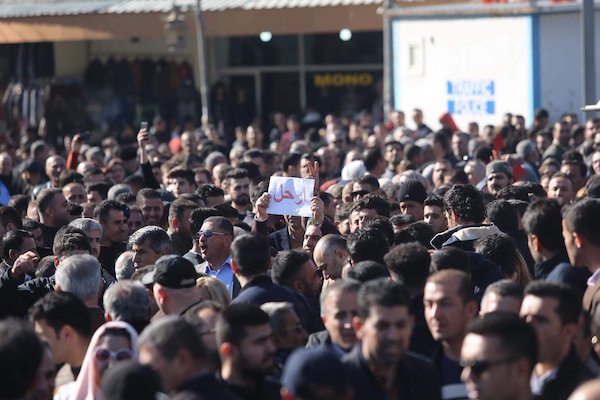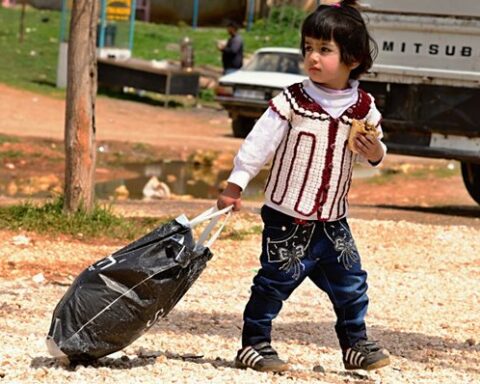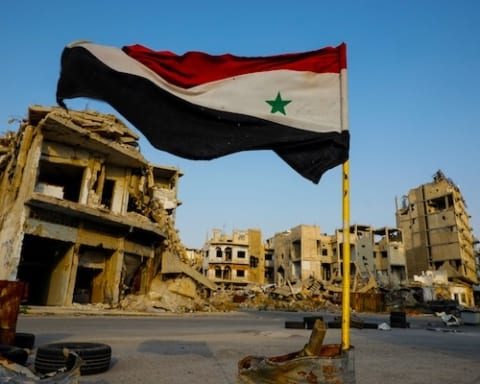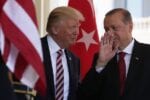5 protesters were killed and 80 others wounded in the city of Raniya on Tuesday, as thousands of protesters took to the streets across multiple provinces in Iraqi Kurdistan. Tensions have been high in the region ever since the Kurdistan Regional Government (KRG) said that it would honor an Iraqi federal court’s decision to nullify the results of September’s referendum, which overwhelmingly favored independence.
Protests are ongoing in #Sulaimani city as public anger mounts against Kurdish gov’t reducing salaries, Baghdad refuses negotiations with #Erbil. pic.twitter.com/oLeMQDW9I4
— Rudaw English (@RudawEnglish) December 18, 2017
However, the sparks which ignited the ongoing protests have deeper roots in the region’s financial crisis.
Ever since the KRG was founded in 2005, it has employed nearly 1.4 million of its own people as civil servants, which is almost 20% of the total population. During those initial years, as oil prices rose and the economy grew, “people used to receive their full salaries on time, as well as loans to start a family or a business,” said Osamah Golpy, a Rudaw journalist raised in Halabja.
But beginning in 2014, as the KRG was already struggling to pay its army of civil servants, a financial crisis hit the region. The crisis was provoked by multiple events, according to Hiva Haji Mirkhan, a member of the Kurdistan Parliament financial committee, including low oil revenues, corruption, the war against the Islamic State, and the KRG’s focus on independence over the economy.
As a result, the Kurdish government’s revenue decreased by 40%, which forced many government workers’ salaries to be reduced or delayed in 2016. Now, the Kurdish parliament has revealed plans to cut government payrolls even further in 2018, which has largely contributed to the public anger seen in this week’s demonstrations.
People protested against delay of salaries and lack of services in Kifri southwest of #Sulaimani and shots were fired while they protested #NRTnews pic.twitter.com/CRH6fjlZdo
— The Citadel (@thecitadel_co) December 19, 2017
“With the current income that is collected by the Kurdistan Regional Government, the salaries of the [public] employees cannot be paid,” said Amanj Rahim, the Secreteray of the KRG’s Council of Ministers, explaining that the cuts were due to the loss of Kirkuk’s oil fields. Iraqi forces seized those fields in October following the failed independence movement lead by Masoud Barzani. The new cuts are also expected to affect members of the security forces who helped to defeat the Islamic State, including the Peshmerga forces, although Rahim said no final decision had been made.

In a televised statement on Tuesday evening, Ali Bapir, leader of the Kurdistan Islamic Group, called for peace between protesters and security forces.
“We are very sad that once again demonstrations in the Kurdistan Region, unlike the majority of protests in the world, have resulted in a lot of martyrs and injured,” he said. “There are no grounds for killing people.”
In related news, Iraqi Kurdistan’s internal security forces, Asayish, raided the offices of NRT, a Kurdish private broadcaster, in the province of Sulaimaniya. Upon raiding NRT’s offices, security forces took the channel off the air, according to Reuters.
LIMA CHARLIE NEWS, with James Fox
Lima Charlie provides global news, insight & analysis by military veterans and service members Worldwide.
For up-to-date news, please follow us on twitter at @LimaCharlieNews



![Image The Fears of Iran and its Forgotten Kurds [Lima Charlie News]](https://limacharlienews.com/wp-content/uploads/2019/02/Fears-of-Iran-and-its-forgotten-Kurds-Lima-Charlie-News-480x384.jpg)
![Image Arabs and Kurds - Why can’t they just get along? [Lima Charlie News]](https://limacharlienews.com/wp-content/uploads/2019/01/Arabs-and-Kurds-Why-can’t-they-just-get-along-480x384.png)


![The Art of Foreign Influence: The Russian Military Adviser [Lima Charlie News]](https://limacharlienews.com/wp-content/uploads/2019/06/The-Art-of-Foreign-Influence-The-Russian-Military-Adviser-480x384.png)
![Iranian crackdown on MEK shows the activist group has popular support [Lima Charlie News]](https://limacharlienews.com/wp-content/uploads/2019/05/Iran-MEK-Lima-Charlie-001-480x384.png)

![Image The Fears of Iran and its Forgotten Kurds [Lima Charlie News]](https://limacharlienews.com/wp-content/uploads/2019/02/Fears-of-Iran-and-its-forgotten-Kurds-Lima-Charlie-News-150x100.jpg)